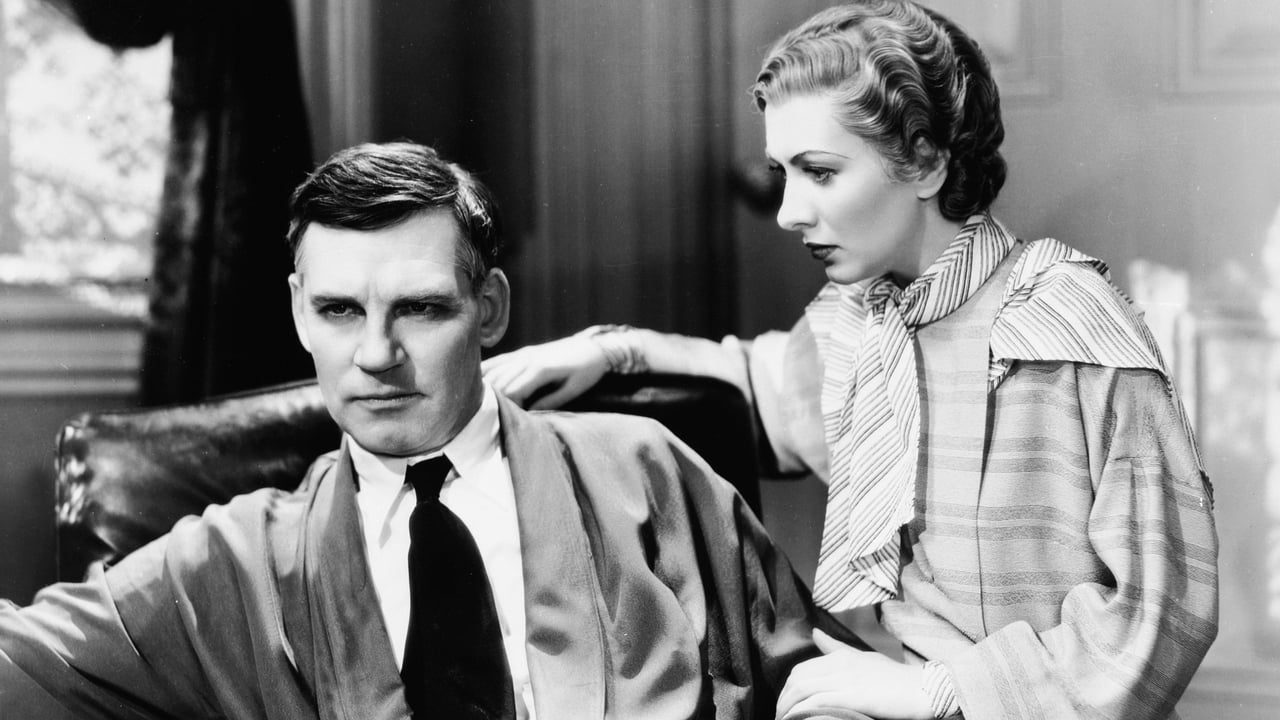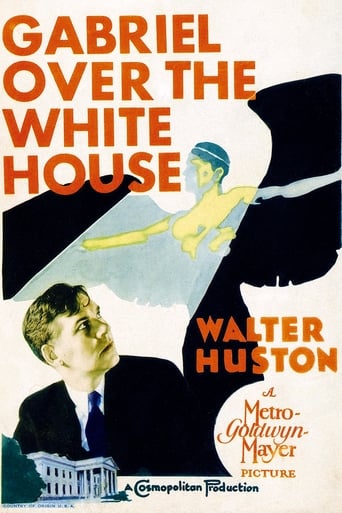

Terrible acting, screenplay and direction.
... View MoreSERIOUSLY. This is what the crap Hollywood still puts out?
... View MoreAm i the only one who thinks........Average?
... View Moren my opinion it was a great movie with some interesting elements, even though having some plot holes and the ending probably was just too messy and crammed together, but still fun to watch and not your casual movie that is similar to all other ones.
... View MoreJudson Hammond (Walter Huston) is sworn in as the new President of the United States. It's quickly obvious that he's nothing more than another politician with no intention of trying to fix the nation's problems, such as staggering unemployment, bootlegging, and unpaid war debts. After Hammond is in a car accident (for driving 100 mph!), some outside force seems to come over him. Suddenly he's completely changed and starts making radical decisions that ultimately lead to him becoming a dictator! Fascinating political drama that has to be seen to be believed. Obviously, it has great historical value and lots for history buffs to chew over. Franklin Roosevelt and wife Eleanor loved the film. FDR was a part of the process of making it, even giving script notes to the filmmakers! The movie was produced by FDR supporter William Randolph Hearst (Citizen Kane himself) and the star Walter Huston was as big an FDR booster as they come. This was made during the Great Depression and, in many ways, this story reflected the desire of the Roosevelts and supporters to fix the country by any means necessary. It's interesting to think about the real-world implications as you watch the movie.
... View MoreWalter Huston is excellent as always portraying a Depression-era President of the United States who sees his work for the American people as just another job. He's reckless and cavalier, but after coming out of a coma brought about by a car wreck, the lazy leader suddenly reforms and gets down to business. He wants his entire Cabinet to resign and Congress to adjourn so that he can take control over the U.S. via a one-man dictatorship. Dated, though still interesting piece of political folly and impudence, written by Carey Wilson from an "anonymous" novel, was probably a timely and enjoyable picture of its day; however, with Hitler's dictatorship in Germany about to change all of Europe, the movie soon lost its novelty (and the fascist overtones and the subtle religious angle, with Huston apparently overtaken by an otherworldly spirit, likely didn't help matters). Were the filmmakers trying to say that if God has His way, America would best be ruled under Marshall Law? One can certainly enjoy the picture without having to parallel its tactics with events in world history, although some may argue this angle is the only thing which keeps the film engaging. In either event, the acting is solid (if occasionally broad), the editing is sharp, and director Gregory La Cava does striking work; his strong, provoking visual sense causes several sequences to resemble German Expressionism. **1/2 from ****
... View MoreI recently caught this film on TCM and was fascinated with it. "Gabriel over the White House" was released in 1933. Walter Huston plays the newly elected President, who sees himself as merely a figure head, one member of his party, as he tells his personal secretary (Karen Morley). Well, it takes a car accident and a coma to "change" this President from an indifferent man to one who becomes a champion of the poor and downtrodden. What is amazing about the film is it tackles the Great Depression head on, and does not shy away from it at all (not many films of that time did so in such a frank manner, at least not MGM films, which wanted audiences to forget their troubles). The "changed" President (apparently guided by an angel "Gabriel") tackles Congress, asking for money to help the poor. Naturally, they balk. The film has its flaws - plenty of them. Scenes of a gangster "Nick Diamond" shooting up the White House (right through the windows! - not bloody likely, even in 1933, when security might not have been as tight), and scenes of the President asking foreign countries to pay their debts, and big tanks supposedly blowing up bootleggers headquarters, and on and on. The script at times jumps all over the place. But the saving grace of the film is the great actor Walter Huston, who lends amazing credibility to what must have been a tough role. With his deep booming voice of authority, he sounds quite presidential. Fanchot Tone plays the secretary of state in a somewhat thankless role, and Karen Morley is sweet as the woman who believes in the President. Much has been discussed about whether this film is about Franklin Roosevelt, who took office in March 1933. The release date of this film is also 1933, but tough to say when it was actually filmed. Either way, the film is obviously made as a tale of moral uplift, to give Depression weary Americans hope. To analyze it beyond that is probably not necessary.
... View MoreGabriel Over The White House comes to the movie going public, courtesy of William Randolph Hearst's Cosmopolitan Productions, at a very special time in history when there was grave worry as to whether America and the capitalist system would survive. What producer Hearst is telling us is how he feels that the Deity if he intervened would solve all our problems.Walter Huston is our star/protagonist here, a newly elected president who is no Franklin D. Roosevelt, but rather more of a Warren Harding type. Catch Huston offering up the usual political pablum at his press conference in terms of what to do about the Depression. It's rather depressing. Later on at his cabinet meeting some issue about an appointment comes up and he just remarks that if you boys in the cabinet and party feel this way, who is he to question it.But then our president who the Secret Service would NEVER let get behind the wheel of a car totals the White House limousine and goes into a coma from the concussion. It's at that point Huston gets a heavenly intervention into his nature and starts enacting policies, presumably that God and William Randolph Hearst would approve, not necessarily in that order.Huston makes first an amiable nonentity and then a stern statesman in the White House. It's like he's playing two different parts and in fact that's precisely the point of the film. Besides economic want, folks in 1932-33 were very much concerned about the rise of lawlessness, organized criminal gangs that grew out of the 18th Amendment to the Constitution. A lot of what Huston does could be construed as worse than the disease in terms of civil liberties. Repealing Prohibition was something only a few wackos like Alfred E. Smith wanted and Smith was Hearst's mortal political enemy. From the man who couldn't wait to get to war in Cuba in 1898, William Randolph Hearst had become a pacifist and an advocate for disarmament and he proves it by going farther than either the Washington or London conferences on that subject. Adolph Hitler was on the verge of becoming Germany's Chancellor at the time Gabriel Over The White House came out, someone like him wasn't factored into the equation for world peace.All in the name of peace, prosperity, and the coming millenia and since it's all directed from heaven, we don't and aren't supposed to question it. The perfect world in the mind of William Randolph Hearst.Gabriel Over The White House tells us a lot about America midst the Depresssion, our hopes, fears, and aspirations. And it offers the more authoritarian method of attaining those aspirations. It's an entertaining film, but it's more a psycho-political picture of the USA at that point in our history.
... View More